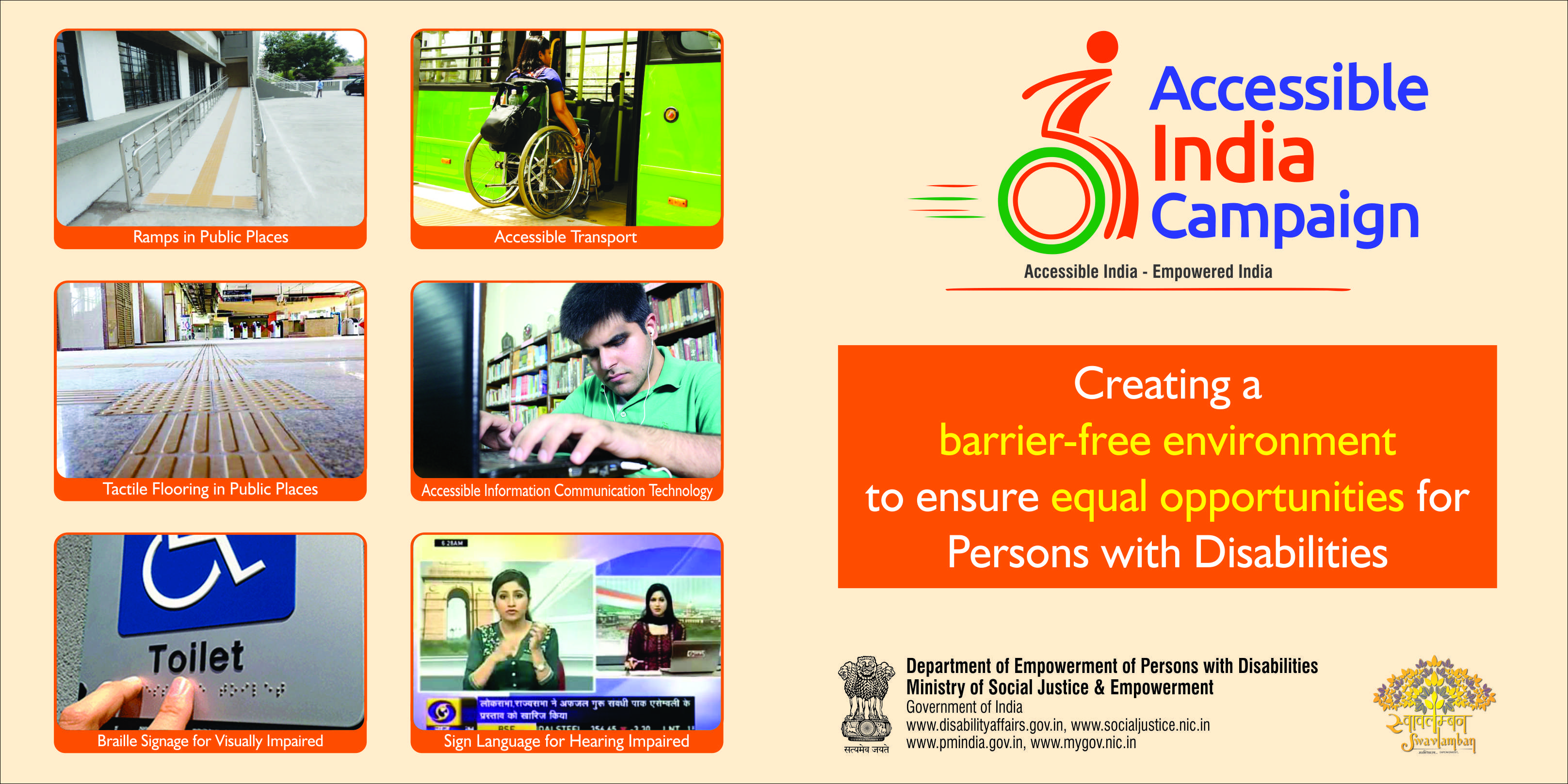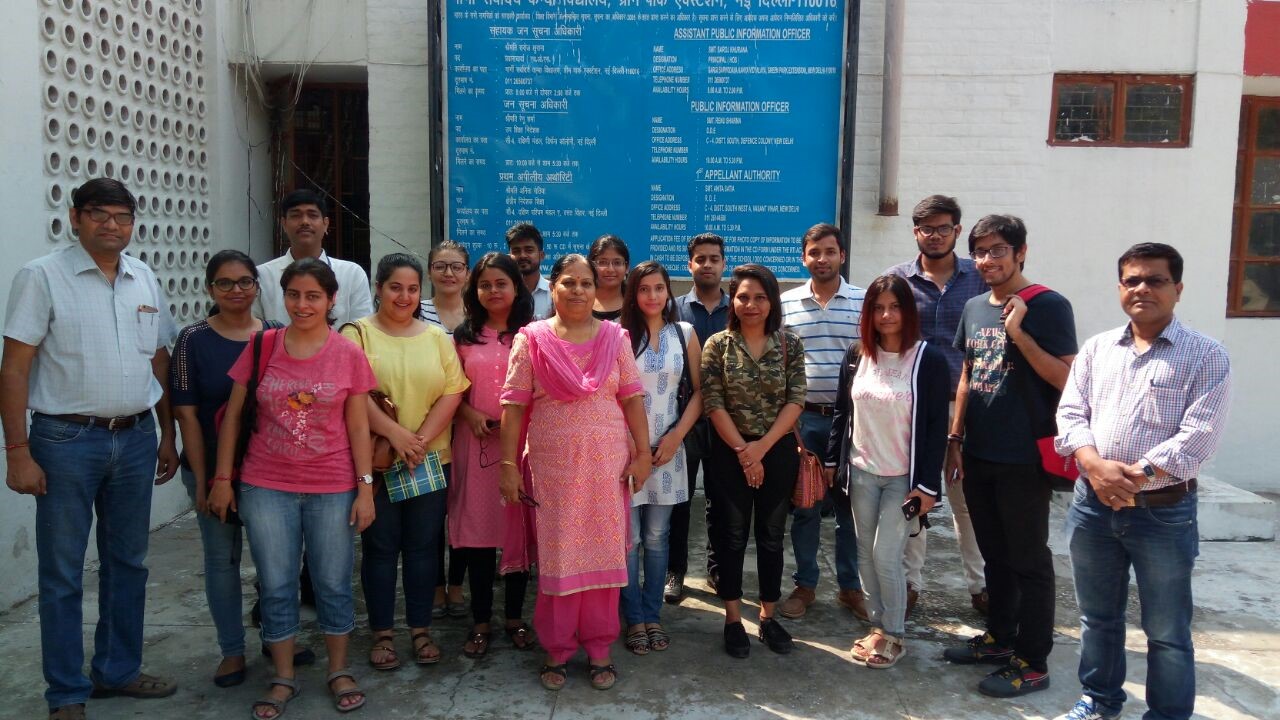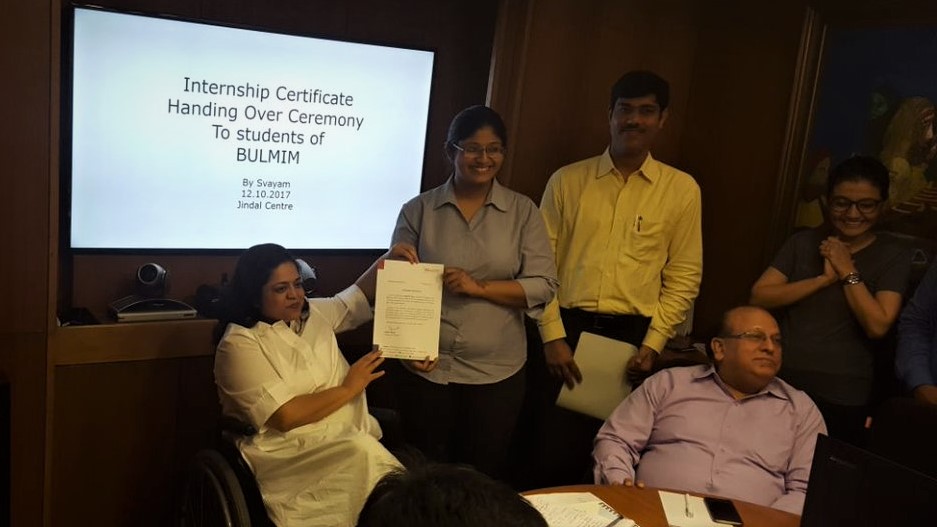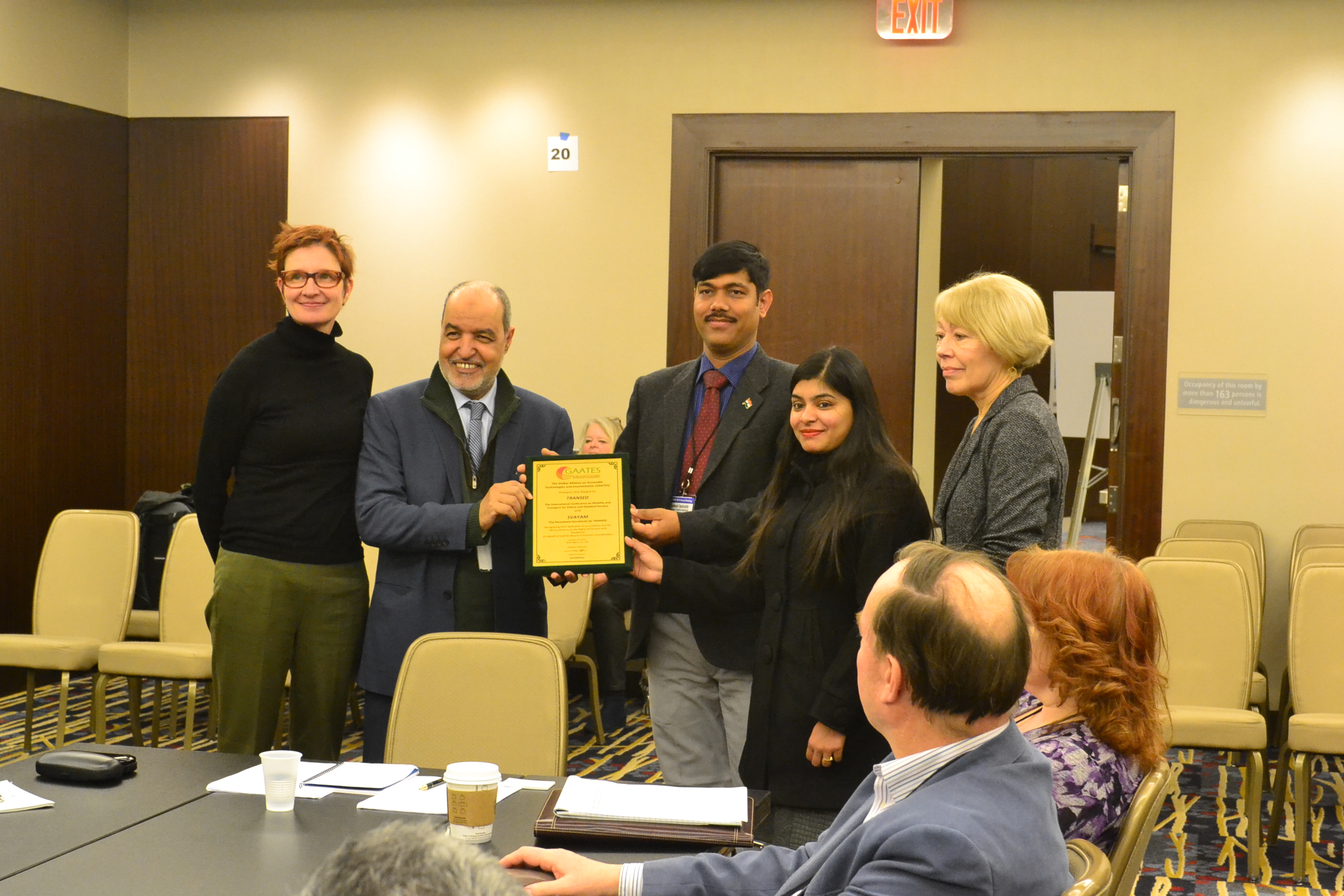
ACCESSIBLE INDIA CAMPAIGN | SUGAMYA BHARAT ABHIYAN
Department of Empowerment of Persons with Disabilities, Ministry of Social Justice & Empowerment, Govt. of India
According to Census 2011, there are 2.68 crore persons with disabilities in India, who constitute 2.21% of the total population. However, estimates vary across sources and in reality this figure could be much higher.
Accessibility is the key to inclusion and equal access for people with disabilities. An accessible barrier-free environment is the first step towards fulfilling the right of people with disabilities to participate in all areas of community life.
Accessibility for people with disabilities was recognized as a right in India with the passage of The Persons with Disabilities (Equal Opportunities, Protection of Rights and Full Participation) Act in 1995, which mandated barrier-free access in all public places and transportation systems. India is also a signatory to the United Nations Convention on the Rights of Persons with Disabilities (UNCRPD). Article 9 of UNCRPD casts an obligation on all the signatory governments to take appropriate measures to ensure to persons with disabilities access, on an equal basis with others, to the physical environment, to transportation, to information and communications, including information and communications technologies and systems, and to other facilities and services open or provided to the public, both in urban and in rural areas.
The Government of India envisions to have an inclusive society in which equal opportunities and access is provided for the growth and development of persons with disabilities to lead productive, safe and dignified lives. In furtherance of this vision, the Department of Empowerment of Persons with Disabilities, Ministry of Social Justice & Empowerment has launched the Accessible India Campaign (Sugamya Bharat Abhiyan), as a nationwide flagship campaign for achieving universal accessibility for Persons with Disabilities and to create an enabling and barrier free environment, with a focus on three verticals: Built Environment; Public Transportation and Information & Communication Technologies.
In view of the above, the following objectives and targets have been envisioned under the campaign:
BUILT ENVIRONMENT
Objective 1 – Enhancing the proportion of accessible government buildings
Target 1.1: Conducting accessibility audit of at least 50 most important government buildings and converting them into fully accessible buildings by July 2016 in the following cities:
- Bengaluru
- Chennai
- Delhi
- Hyderabad
- Kolkata
- Mumbai
- Ahmedabad
- Pune
- Bhopal
- Kanpur
- Coimbatore
- Indore
- Jaipur
- Vadodara
- Surat
- Nagpur
- Lucknow
- Patna
- Vishakhapatnam
- Raipur
- Gurgaon
- Srinagar
- Thiruvananthapuram
- Bhubaneswar
- Chandigarh
- Guwahati
Conducting accessibility audit of at least 25 most important government buildings and converting them into fully accessible buildings by July 2016 in the following cities:
- Port Blair
- Itanagar
- Daman
- Panaji
- Shimla
- Ranchi
- Jhansi
- Agra
- Nashik
- Gandhinagar
- Kavaratti
- Imphal
- Shillong
- Aizawl
- Kohima
- Pondicherry
- Gangtok
- Agartala
- Dehradun
- Silvassa
- Ludhiana
- Faridabad
- Varanasi
- Noida
Target 1.2 : Converting 50% of all the government buildings of National Capital and all the State capitals into fully accessible buildings(July 2018).
Target 1.3 : Conducting audit of 50% of government buildings and converting them into fully accessible buildings in 10 most important cities / towns of all the States (other than those, which are already covered in Target 1.1 and 1.2 above) (July 2019).
PUBLIC TRANSPORTATION
Objective 2 – Enhancing proportion of accessible airports
Target 2.1: Conducting accessibility audit of all the international airports and converting them into fully accessible international airports (July 2016).
Target 2.2: Conducting accessibility audit of all the domestic airports and converting them into fully accessible airports (March 2018).
Objective 3: Enhancing the proportion of accessible railway stations
Target 3.1: Ensuring that A1, A & B categories of railway stations in the country are converted into fully accessible railway stations (July 2016).
Target 3.2: Ensuring that 50% of railway stations in the country are converted into fully accessible railway stations (March 2018).
Objective 4: Enhancing the proportion of accessible Public Transport
Target 4.1: Ensuring that 10% of Government owned public transport carriers in the country are converted into fully accessible carriers (March 2018).
Objective 5: Enhancing proportion of accessible and usable public documents and websites that meet internationally recognized accessibility standards
Target 5.1: Conducting accessibility audit of 50% of all government (both Central and State Governments) websites and converting them into fully accessible websites (March 2017).
Target 5.2 : Ensuring that at least 50% of all public documents issued by the Central Government and the State Governments meet accessibility standards(March 2018).
Objective 6: Enhancing the pool of sign language interpreters
Target 6.1: Training and developing 200 additional sign language interpreters (March 2018).
Objective 7: Enhancing the proportion of daily captioning and sign-language interpretation of public television news programmes
Target 7.1: Developing and adoption of national standards on captioning and sign-language interpretation in consultation with National media authorities (July 2016)
Target 7.2: Ensuring that 25% of all public television programmes aired by government channels meet these standards. (March 2018)
Apart from the targets specific to the three verticals, the Campaign is also in the process of developing a web portal along with a mobile application for creating a crowdsourcing platform to comprehensively obtain information about inaccessible places, processing information for approving proposals and channelizing CSR resources for creating of accessible spaces. An Accessibility Index is also underway to which is envisioned to serve as a tool to assess the extent to which the processes and systems of an organization are aligned to ensure independent, dignified and positive dealing with employees and clients with disabilities.
The campaign was officially launched on December 3, 2015 at Vigyan Bhawan by the Govt. of India.




